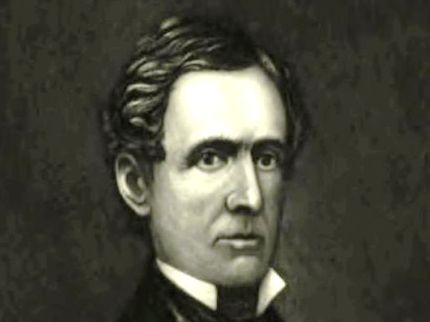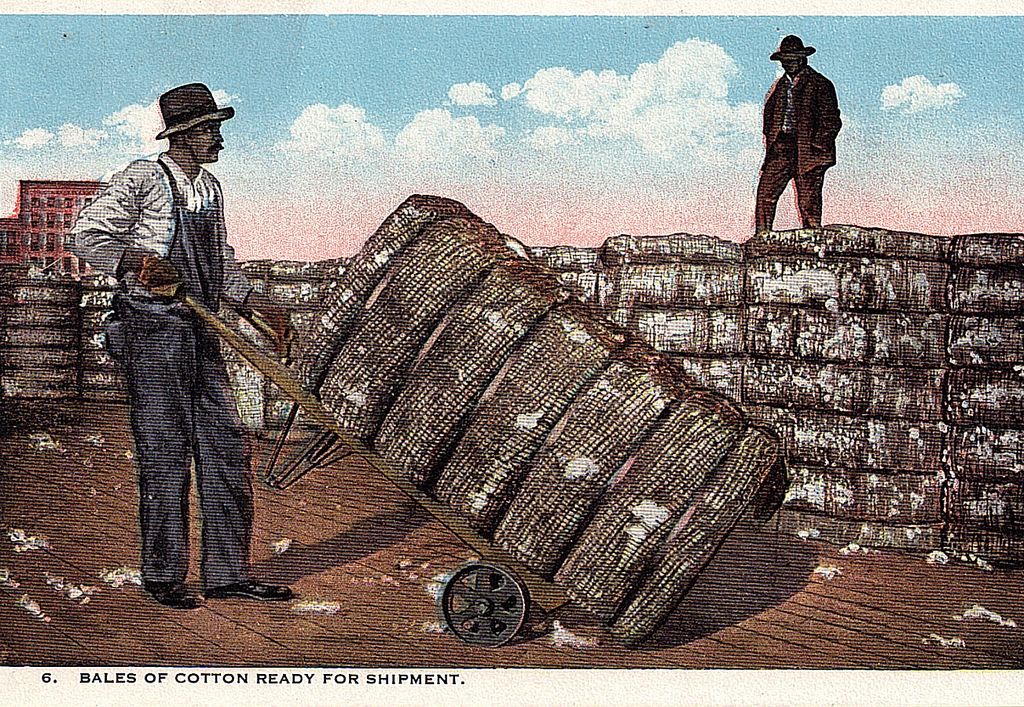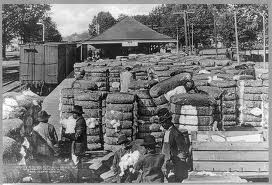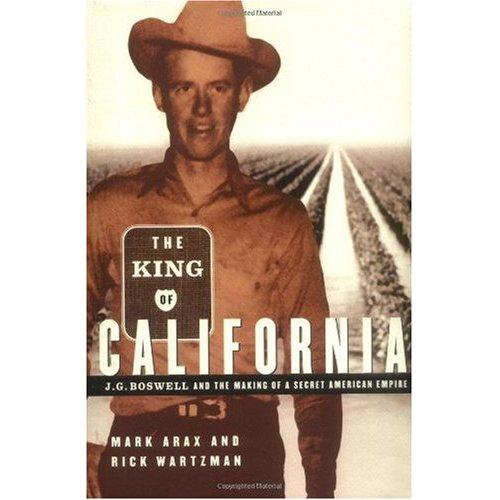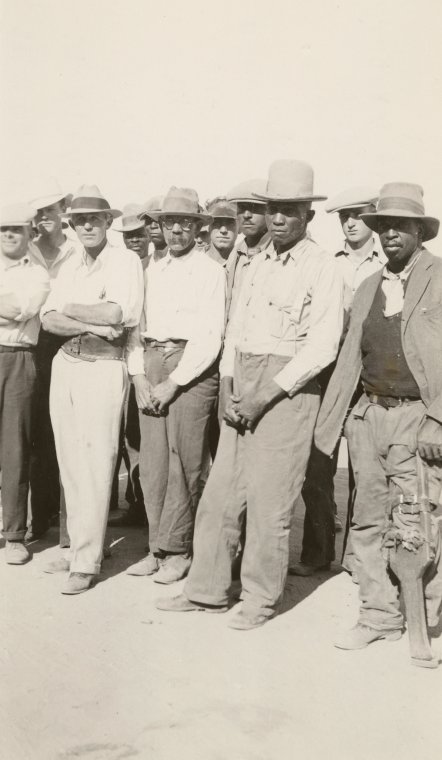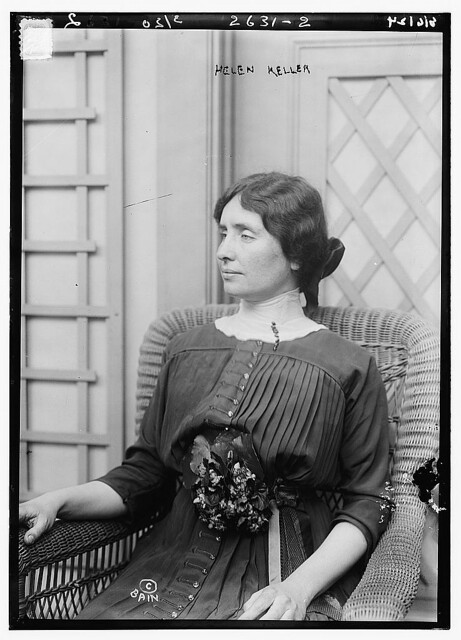
EXECUTION OF GORDON THE SLAVE-TRADER, NEW YORK, FEBRUARY 21, 1862.
From History Net, "Hanging Captain Gordon," by Ron Soodalter, Originally published on HistoryNet.com. , on 18 August 2009 -- On a February day in 1862, a slight, bearded prisoner stood beneath the gallows in a New York City prison courtyard, facing death. Captain Nathaniel Gordon was surrounded by Marines and a crowd of invited "guests"—mostly reporters, politicians and officials. Convicted of "piratically confining and detaining negroes with intent of making them slaves," Gordon was about to become the only man in American history to be executed for the crime of slave trading. The Slave Trade Act of 1794, enacted only five years after George Washington's inauguration, prohibited exporting slaves from the United States to any foreign country, also declaring it illegal to "build, fit, equip, load, or otherwise prepare" a vessel within U.S. borders for slave trading. The first action taken by any nation against slave traders, it marked the first in what was to be a series of increasingly restrictive laws directed against the lucrative slave trade, culminating in the Piracy Act of 1820, which stated that any U.S. citizen on the crew of a foreign ship, or anyone serving on a U.S. ship that seized a "Negro or mulatto…shall be adjudged a pirate…and shall suffer death."

Why were such laws passed even though the South still depended on slave labor throughout the first half of the 19th century? In fact, by 1820 most Southern planters felt they already had enough slaves. White Southerners were terrified that the population of slaves and free Blacks might grow to outnumber their own. They were well aware of what had happened in Haiti only a few years earlier, when the slave population took over the entire island. There had also been sporadic slave revolts in various spots throughout the Southern states in 1800, 1811 and 1831—small, to be sure, and quickly and brutally put down, but frightening nonetheless.
So America's need for slaves was dwindling. Laws forbidding trafficking were enacted, and the slave trade should have come to an end. But while the Southern states' demand lessened, Brazil and Cuba were increasingly in need of slaves to work sugar cane and coffee plantations. The bounties paid for workers there were not as high as the price tags fetched on the auction blocks of Charleston, Mobile or Atlanta, but they were still enough to attract thousands of ships to Africa's coastal slave markets.
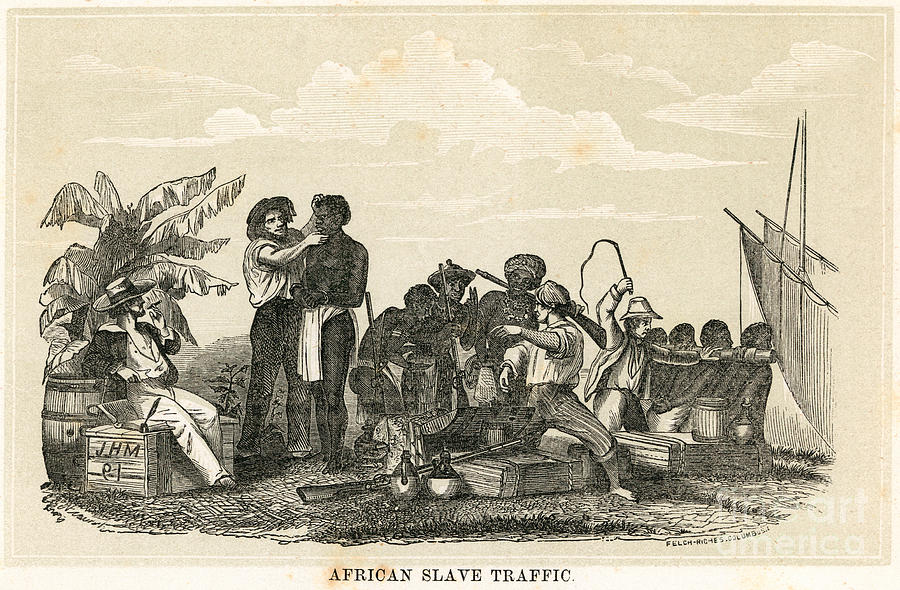
And while the newly enacted American laws should seemingly have discouraged slave traders, the U.S. government did virtually nothing to enforce them early in the century. Ships by the thousands sailed from New York and New England for the African coast, packed their stifling holds with slaves, then delivered them to Rio de Janeiro and Havana. Arrests were few, convictions even fewer. Why bother to enforce laws that merely prohibited bringing slaves from Africa to a foreign country when there was no law preventing selling them from, say, Virginia to Louisiana?
That was the situation until 1842, when the American government signed a treaty with England resulting in both countries forming an armed fleet—an "African Squadron"—to curb slave traffic. The British squadron was incredibly successful; within a six-year period it captured more than 500 slave ships transporting some 40,000 captives. In that same period, however, its American counterpart captured just six vessels—one per year. In over four decades not a single slave trader was hanged, and few were punished at all.

For slave traders, even one successful voyage was profitable beyond all reason. In the mid-1800s, a slave purchased in Africa for approximately $40 worth of trade goods would bring an estimated $400 to $1,200. That means a cargo of, say, 800 slaves would bring between $320,000 and $960,000.
Attrition was the inevitable result of any slaving voyage. The death rate among captives varied, depending on the length of the voyage, the severity of conditions and the callousness of captain and crew. It averaged 17.5 percent among American slavers; out of every 1,000 Africans shipped as slaves, approximately 175 perished of disease, thirst, starvation, suffocation, exhaustion, suicide and sometimes simply despair.

Slaver captains were a hardy lot, seemingly inured to the suffering they inflicted. Nathaniel Gordon's ancestors had come to the colonies in 1621, and made their living from the sea ever since. He had already commanded at least three slaving voyages before his capture. On his fourth he sailed to the Congo River, where in August 1860 he crammed nearly 900 Africans—half of them children—into the hold of his small ship Erie and bore away for Havana, Cuba. The New York Times would later report: "Had he reached the port of destination with the usual proportion of living Negroes, an immense fortune would have been made, and in that event, as he declared, he would have returned to the United States rich and contented….But it was ordained otherwise."
Captured by a ship of the African Squadron, Gordon was taken to New York City for trial in federal court—ironic, since New York had long been the epicenter of the U.S. slave trade. It had financed, fitted out and sent forth more slaving expeditions than any other American port. Slavers had typically been given a token slap on the wrist thus far. The U.S. attorney had no particular interest in prosecuting slaving cases. President James Buchanan, who occupied the White House when Gordon was arrested, had declared that he would never hang a slaver. It seemed Gordon had nothing to worry about.

But after the 1860 election of Abraham Lincoln, a strongly Democratic, Southern-leaning New York City found itself with a new Republican U.S. attorney, Edward Delafield Smith, who entered office determined to put an end to the slave trade. And Smith made Nathaniel Gordon his personal demon.
Charged under the 1820 Piracy Act, Gordon had a veritable "dream team" defending him, under the leadership of a brilliant former judge, Gilbert Dean. But the arguments that had for decades served to set slavers free no longer worked. It took over a year and two trials, but Smith won his conviction. On November 30, 1861, Judge William Shipman, trying his first slave trade case, sentenced Gordon. His pronouncement of judgment rings with a sense of outrage that still reverberates nearly 150 years later, beginning ominously: "You are soon to be confronted with the terrible consequences of your crime." Gordon was scheduled to be hanged on February 7, 1862.

The only avenue of appeal was the president. Although only a year into his first term at the time, Lincoln had already earned a reputation for his liberal use of the power to pardon. Some saw this as proof that he was a compassionate man, but others—including Secretary of the Navy Gideon Welles and Attorney General Edward Bates—viewed him as a sentimental meddler who was undermining military discipline and the sanctity of the courts. The president, Welles confided to his diary: "is always disposed to mitigate punishment, and to grant favors. Sometimes this is a weakness." Bates opined that Lincoln had only one failing: "I have sometimes told him…that he was unfit to be entrusted with the pardoning power because he was almost certain to be affected by a touching story."
There were three areas in which Lincoln's pardoning power pertained. The first related to cases in the civil courts, including the slave trade. According to State and Justice Department records, Lincoln reviewed 456 civil cases, and in 375 of those pardons were granted.
Second were military cases—and here is where Lincoln was most often criticized for interfering with discipline. The president did in fact pardon many boys who had fallen asleep on guard duty or had deserted. His inclination toward mercy was certainly not lost on his generals. In 1864 William T. Sherman, for example, expressed his frustration on this subject in a letter to the judge advocate general, revealing that he planned to "execute a good many spies and guerillas—without bothering the President….we all know that it is very hard for the President to hang spies, even after conviction, when a troop of his friends follow the sentence with earnest…appeals." When Joseph Hooker sent an envelope to the president containing the cases of 55 convicted and doomed deserters, Lincoln merely wrote "Pardoned" on the envelope and returned it to Hooker unopened.

The third class of cases calling for Lincoln's clemency had to do with those rebelling against the government. Lincoln's attitude toward the South reflected the greatest expression of his mercy. He wanted nothing more than a return of the seceded states to their former place in the Union, and was "ready at any time to grant a general amnesty with a remission of all penalties except the loss of property in slaves, if the measure would hasten the return of peace and the end of the Confederacy."
None of this is to imply that Lincoln was always a soft touch, however. An old friend wrote that the president "would strain a point to be kind, but he never strained it to breaking. He would be just as kind and generous as his judgment would let him be—no more."
When Lincoln's friend, Illinois lawyer and congressman Henry Bromwell, visited the White House late in the war, Lincoln complained to him of the constant pressure to pardon or reprieve men: "I reckon there never was a man raised in the country, where they are always butchering cattle and hogs and think nothing of it, that ever grew up with such an aversion to bloodshed as I have and yet I've had more questions of life and death to settle in four years than all the men who ever sat in this chair put together. But, I've managed to get along and do my duty, as I believe, and still save most of them….But…there are some cases where the law must be executed."
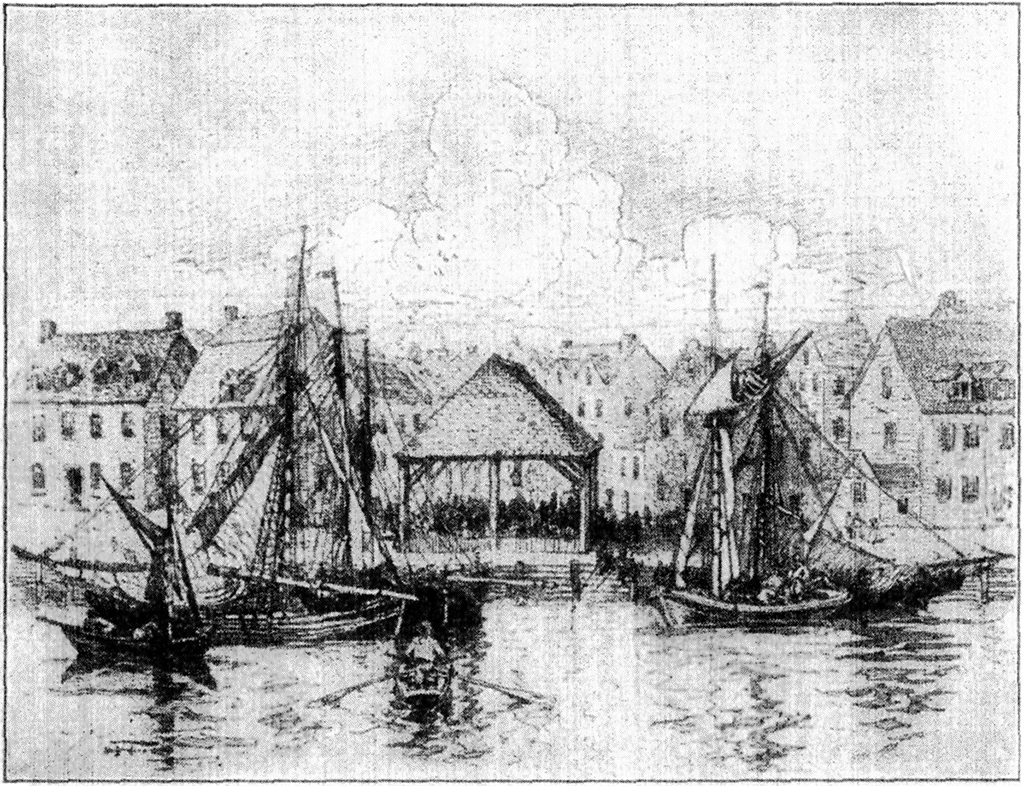
Thus Lincoln emerges as a man who is empathetic and kind, but he is also the leader of a powerful, war-torn nation, keenly aware that his decisions inevitably have to reflect that nation's greater good. And so it would be in the case of Nathaniel Gordon.
Once it became apparent that an American might actually go to the gallows for slave trading, Lincoln faced tremendous pressure. Members of Congress sought clemency for Gordon, as did some of Lincoln's friends. Petitions containing thousands of names arrived on the president's desk, earnestly beseeching him to pardon the slave trader or grant him a reprieve. The arguments ranged from the sentimental—"Please consider his innocent mother, wife and child"—to the legal—"You can't kill a man for violating a law that has been a dead letter for over 40 years!" And for every supplicant seeking pardon for Gordon there was another one seeking the death penalty. The New York Times opined on January 28, 1862: "…it is more than high time to assure mankind, that we do in all honesty regard man-stealing as a crime of the utmost atrocity….Every consideration of justice…and of public policy demand the execution of the sentence of the law upon [Gordon]; and we doubt not the President will so answer the prayer of these petitioners."
In late January 1862, the slaver captain's counsel, Judge Dean, went to Washington to urge the president to pardon or reprieve his client. U.S. Attorney Delafield Smith visited the president as well. Fearing that public pressure might influence Lincoln to spare Gordon's life, Smith had hurried to the White House to implore him not to interfere with justice in this case. One of Smith's assistant U.S. attorneys described the prosecutor's meeting with the president.
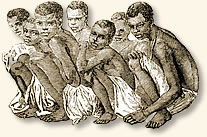
When he met Mr. Lincoln, as he afterward reported to me on his return, Mr. Lincoln took out from his desk the reprieve already prepared and laid it before him. He picked up a pen, which he held in his hand while he listened to the argument of Mr. Smith on the imperative necessity of making an example of this man Gordon, in order to terrorize those who were engaged in this business.
Mr. Lincoln listened to him very patiently and with a sort of wail of despair (as it was afterward described), flourishing the pen over the reprieve he said: 'Mr. Smith, you do not know how hard it is to have a human being die when you know that a stroke of your pen may save him.' He threw down the pen….
The prosecutor need not have worried about Lincoln's resolve. In fact Lincoln from the beginning had no intention of sparing Nathaniel Gordon's life. On February 4, just three days before Gordon was scheduled to die, the president wrote, "I think I would personally prefer to let this man live in confinement and let him meditate on his deeds, yet in the name of justice and the majesty of law, there ought to be one case, at least one specific instance, of a professional slave-trader, a Northern white man, given the exact penalty of death because of the incalculable number of deaths he and his kind inflicted upon black men amid the horror of the sea-voyage from Africa." And three years later, shortly before his own death, he told Congressman Henry Bromwell: "There was that man who was sentenced for piracy and slave-trading on the high seas. That was a case where there must be an example and you don't know how they followed and pressed to get him pardoned, or his sentence commuted, but there was no use of talking. It had to be done; I couldn't help him."

Despite his resolution, Lincoln apparently felt he had to make some sort of response to the public outcry. He chose to issue Gordon a two-week reprieve. In his statement, Lincoln wrote that Gordon might have been misled by his counsel and his supporters into expecting a commutation. He proposed to give him time to make "the necessary preparations for the awful change which awaits him…I do hereby grant unto him a respite…until Friday, the twenty-first day of February…." Attorney General Bates had advised Lincoln against the two-week reprieve, concerned that it would be generally misread as an opportunity for Gordon's proponents to plead the slaver's case anew—and he was right.
Meanwhile, the White House was submerged in a miasma of fear and anxiety that had nothing whatsoever to do with Nathaniel Gordon or the war. Two of the Lincoln sons, 8-year-old Tad and 11-year-old Willie, had become seriously ill, probably from typhoid. Tad would improve, but Willie's condition continued to worsen. Of all the president's children, Willie was apparently the closest to his father in manner as well as nature, and Lincoln clearly adored the boy. On February 18, Attorney General Bates wrote in his diary: "The President's 2nd son, Willie, has lingered on for a week or 10 day(s), and is now thought to be in extremis. The President is nearly worn out, with grief and watching."

Just the day before, Lincoln had received a pleading letter from Rhoda E. White, the wife of a New York judge, who had traveled to Washington with Captain Gordon's wife and mother to plead for clemency. She wrote the president: "I would not intrude upon the sanctity of your sick room and upon your hours of grief but for the sake of Mercy, and for the sake of an afflicted mother and wife who are bowed down with sorrow and look to God and to you to lift the heavy burden they are suffering under."
The president refused to see the women, but they were granted an audience with Mary Todd Lincoln. Gordon's wife Elizabeth presented the first lady with a poem she had written, beginning:
Madam,
Within your power it lies to save My husband from an early grave; And rescue from a life of shame, The wife and child who bear his name. Mary Lincoln later attempted to discuss the cause célébre with her husband, but in the words of the U.S. marshal assigned to the Gordon case, "The President…would not allow his wife to broach the subject, and poor Mrs. Gordon returned to New York heartbroken and disconsolate." The night before his scheduled execution, Gordon attempted to cheat the gallows by smoking cigars soaked in strychnine. But prison physicians found him in time and managed to revive him. At noon the next day, the marshal raised his sword, and Captain Nathaniel Gordon died on the gallows. New York attorney and diarist George Templeton Strong commented tartly on the slave captain's execution: "Gordon, poor wretch, made a pitiful exit. He went to the gibbet half-dead with a dose of strychnine…and more than half-drunk with brandy. The doctors dosed him with stimulants and thus kept life in his body for the law to extinguish in due form."
Why did Lincoln refuse to spare Gordon's life? There were several reasons, one of them personal. Lincoln had always been clear on his feelings toward the institution of slavery, writing, "I have always hated slavery, I think as much as any abolitionist." But he made no secret of his position on slavery's legality where it already existed. In 1858 he stated: "I have said it a hundred times, and I have now no inclination to take it back, that I believe there is no right, and ought to be no inclination in the people of the free States to enter into the slave states, and interfere with the question of slavery at all. I have said that always." If slavery was to end, it must be through the force of law, and he was prepared to put aside his personal views—strong though they might be—in deference to it.

Lincoln had no such ambivalence regarding the slave trade; he abhorred it, and more to the point, the law forbade it. In a speech in Peoria, Ill., in 1854, he suggested that Southerners, like Northerners, saw the slave trader as an arch villain. "The poor negro," he said, "has some natural right to himself…those who deny it, and make mere merchandise of him, deserve kickings, contempt and death."On one of the numerous occasions when the president was asked to consider mercy for the convicted slaver, he responded, "I believe I am kindly enough in nature and can be moved to pity and to pardon the perpetrator of almost the worst crime that the mind of man can conceive or the arm of man can execute; but any man, who…can rob Africa of her children to sell them into interminable bondage, I will never pardon."
What's more, with Gordon's execution the president could at least achieve one clear-cut victory in the world's eyes at a time when military triumphs were rare. Lincoln was far from pleased with the war's progress in early 1862. Union defeats at Bull Run and Ball's Bluff had stunned the nation. And Maj. Gen. George B. McClellan was already showing the arrogance and unwillingness to fight that would so infuriate the president over the next several months.

In Gordon's case Lincoln could show Congress, the military, the nation at large and the whole world that the new government had the requisite commitment and fortitude to take a dusty but potentially powerful law and allow it to work in the manner intended by its authors. As The New York Times put it, "Henceforth the Government of the United States washes its hands completely of all complicity in the Slave-trade."
There was another major reason for the president's refusal to grant Gordon mercy, one that would not become evident until the slave trader had been in his grave for two months. It involved reaching an accord with Britain. Relations between the United States and Britain had been strained since the start of the Civil War. Largely for economic reasons, the British government expressed sympathy for the South. Chancellor of the Exchequer William Gladstone stated in the fall of 1862: "There is no doubt that Jefferson Davis and other leaders of the South…have made a nation….We may anticipate with certainty the success of the Southern states so far as regards their separation from the North."
Any British attempt to stop a suspected slave ship flying the American flag was still viewed as an act of outright aggression. But the U.S. Navy was now devoting its energies to the war, and maritime efforts to end the slave trade had practically ground to a stop. Lincoln took steps to correct this. Through Secretary of State William Seward, the president quietly began negotiating a treaty with Lord Lyons for Britain's help in suppressing the slave trade.
London, it can be presumed, had been following the Gordon case with some interest; the new administration's level of commitment to the enforcement of America's slave laws would let Britain know just how serious Lincoln was about eradicating slave traffic. On March 8, the London Daily News published a lengthy article reflecting the British response to Gordon's execution. It read, in part:

It is an index of the quality of Mr. Lincoln's government, of its strength of principle, and the consistency of its policy, and it marks the end of a system….Those who knew President Lincoln well said that he would not lose the precious opportunity to strike a blow at a system which costs hundreds of lives yearly….They said Gordon would certainly be hanged. They were right, and from the Bight of Benin to the Coast of Cuba the man-stealer will tremble.
This was the British response that Lincoln had sought. It paved the way for the Seward–Lyons agreement, which helped to end the slave trade.
Finally, Lincoln refused to save Nathaniel Gordon because, at bottom, the sentence he received was just and appropriate. This was not a case of some unfortunate 16-year-old falling asleep on picket duty or a green soldier running away from the terrors of battle. There was nothing in Gordon's heinous offense or his established history as a slave trader that could arouse the remarkable compassion for which Lincoln would become so well and rightly known. (source: History Net)

